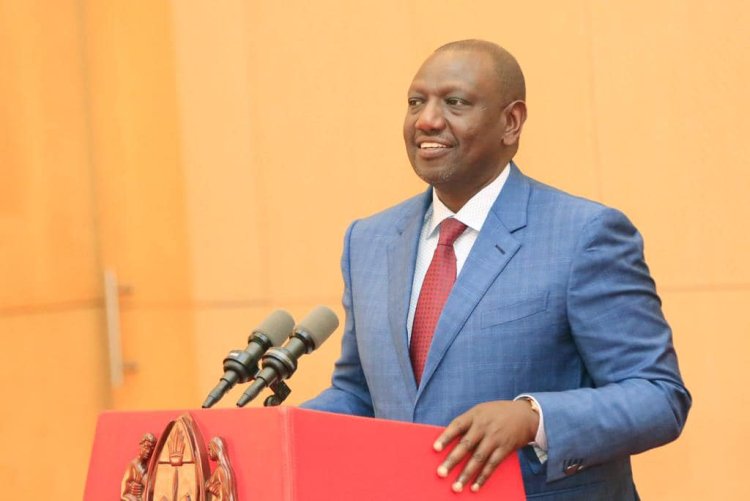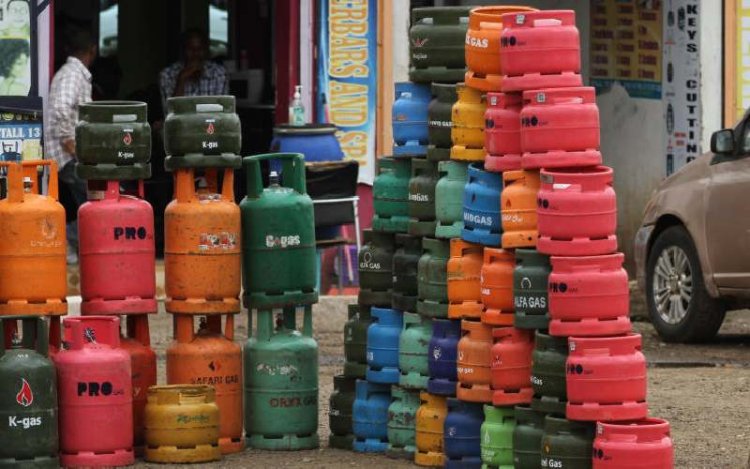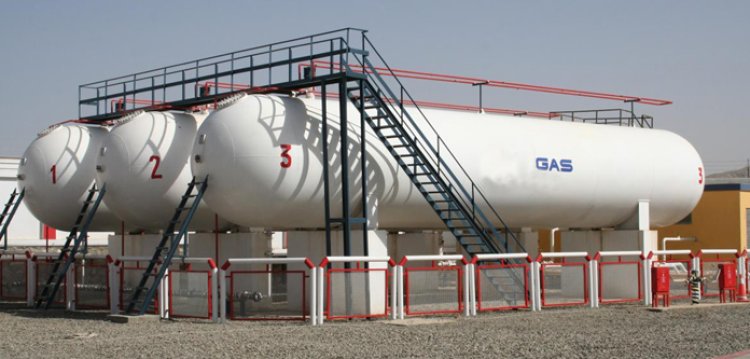Ruto's Plan To Lower Cost Of Cooking Gas
The 600-kilometre pipeline that Kenya will use to import gas from the Mtwara plant in Tanzania has been treated as necessary, which is set to end a delay of nearly one year.

President William Ruto has moved to lower the cost of cooking gas after the government revealed that it plans to speed up the construction of the proposed gas pipeline from Tanzania.
The 600-kilometre pipeline that Kenya will use to import gas from the Mtwara plant in Tanzania has been treated as necessary, which is set to end a delay of nearly one year.
The pipeline whose cost is estimated at Ksh132 billion ($1.1 billion) is part of a Memorandum of Understanding on Cooperation in Natural Gas Transportation that former President Uhuru Kenyatta signed with Tanzanian president, Samia Suluhu in May 2021.

Cooking gas cylinders on display. /STANDARD DIGITAL
Through the importation of gas from Tanzania, Kenyans will have an alternative to lower the cost of cooking gas
“We will expedite the gas pipeline from Dar es Salaam to Mombasa and eventually to Nairobi so that we can use the resources that we have in our to lower energy tariffs both for commercial and domestic use in Kenya,” President Ruto said on Monday, October 10 in a joint briefing with Suluhu.
“We will ensure that what the Government of Kenya is required to do will be done in a timely, efficient and effective manner so that in the shortest time possible we can access the gas resources that you have in your country.”
The project to be funded through Public Private Partnership (PPP) will, upon completion, allow Kenya to access the vast natural gas deposits of Tanzania in a bid to lower the cost of cooking gas as well as electricity prices.
The 13-kilogramme cooking gas has increased to Ksh3,400 while the six-kilogramme is going for Ksh1,500 at the back of a global rally in crude prices and the re-introduction of the six per cent Value Added Tax (VAT) on the commodity.
Kenya brought back a 16 per cent VAT on cooking gas on July 2021, a matter which alongside the global increase in the cost of crude, led to a surge in the prices of the commodity.
The tax was reduced to eight per cent this year after a public uproar but oil marketers have failed to honour the tax reduction directive to consumers.
Unlike diesel, super and kerosene, prices of cooking gas are not controlled by the State leaving consumers at the mercy of oil dealers.
Consumption of liquid petroleum gas (LPG) dropped by 35 per cent in the first half of the year, as the impact of the high prices driven by taxes and the Russia-Ukraine conflict forced Kenyans to purchase adulterated fuel.

An LPG gas plant. /FILE

 admin
admin 




